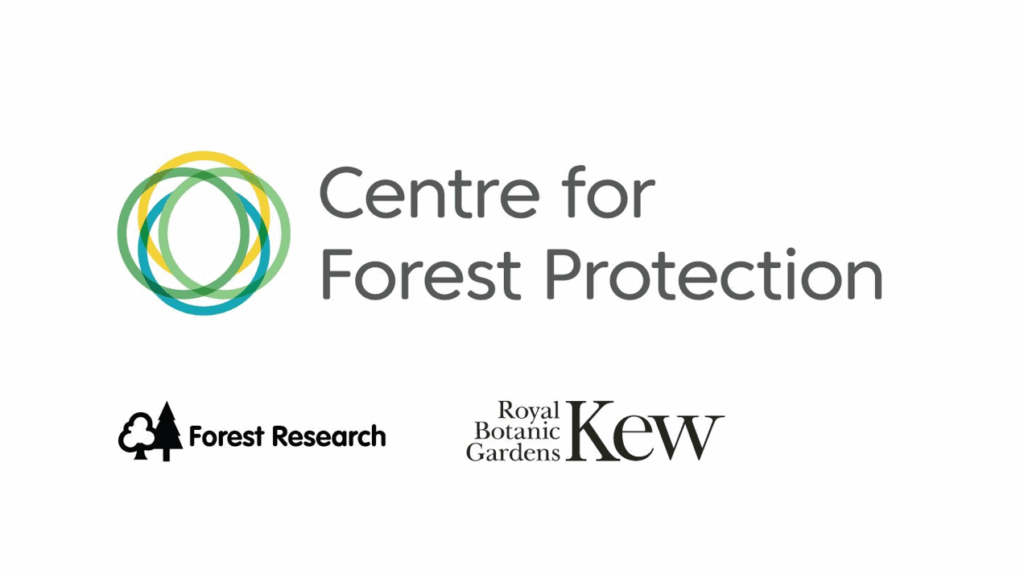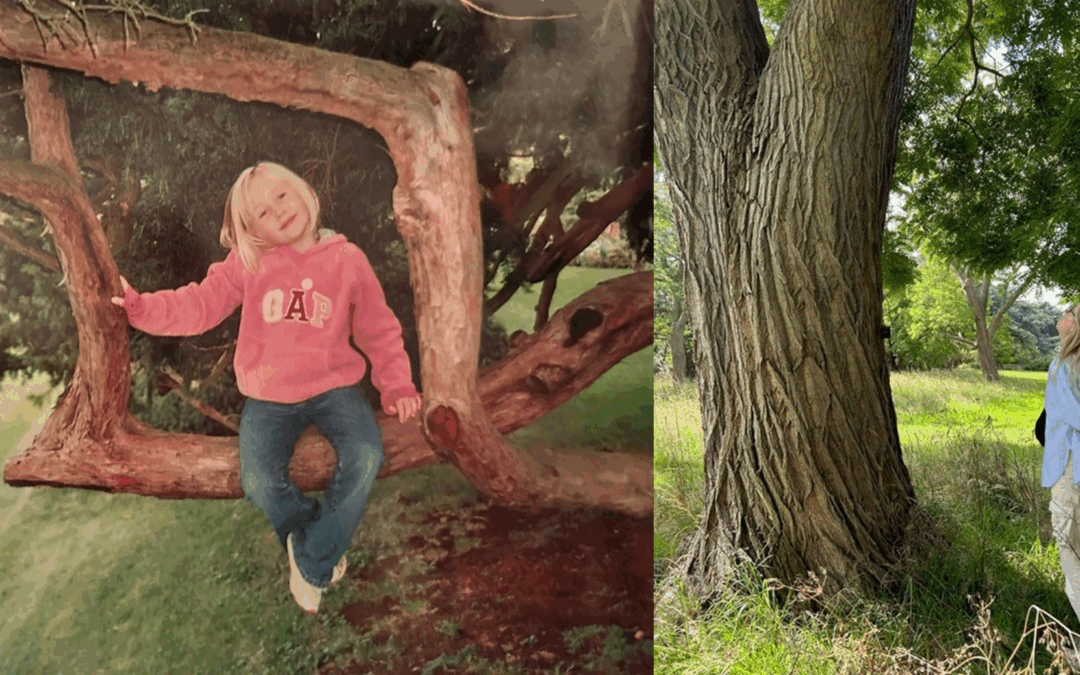PhD student, and former intern with the Centre for Forest Protection, Phoebe Swift tells us about her route into a career in tree genomics…
Where it began…
Having grown up in the rural Cotswolds, I have always been surrounded by nature – from dense woodlands to rolling fields. A career in ecology or conservation was always an aspiration of mine. But it wasn’t until university that I encountered genomics, and discovered how much information DNA can hold, from population history to disease predisposition. My university supervisor, Dr Estrella Luna-Diez, first introduced me to the plant immune system, and the diverse physiological adaptations plants use to overcome attacks from pests and pathogens. This sparked my passion for research and led me to pursue a research master’s focused on uncovering patterns in epigenetic variation associated with ash dieback disease – a deadly fungal pathogen currently threatening European ash populations. This project gave me a taste of the research environment, the variety of approaches used in genomic analysis, and a love for uncovering patterns in large and complex datasets.
But then I know it’s growin’ strong…
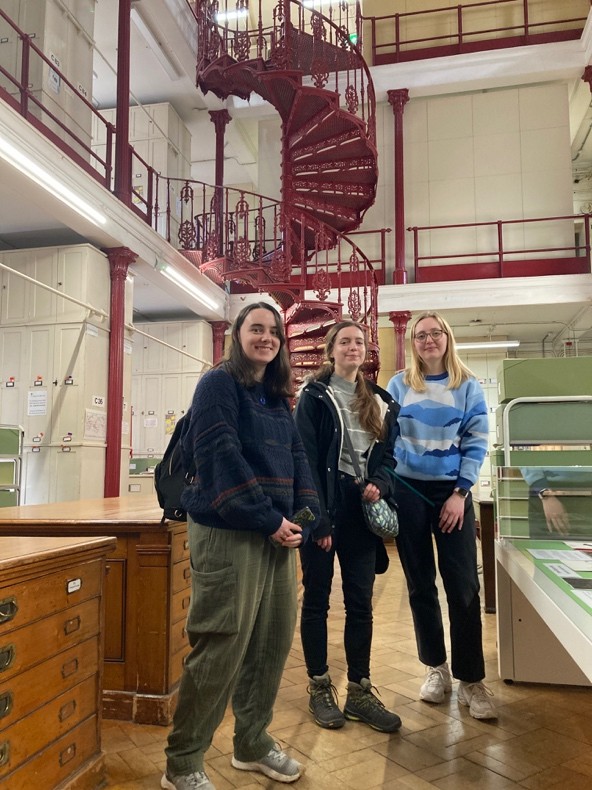 To further develop my bioinformatics skills, I applied for a CFP internship to perform a genome-environment association study on UK alder trees. During the internship, I gained experience in all aspects of analysis – from pipeline development and model running to quality control and variant calling. I also learned to interpret graphs from multiple perspectives and developed transferable skills in project and time management, networking, presenting, and writing. Supported by expert guidance from the project team while still being encouraged to work independently, the internship gave me an invaluable insight into the world of research and helped me decide that it was the right path for me. It was also great fun! I had the chance to tour the Kew Herbarium (pictured on the right) and the Forest Research Alice Holt facility with my fellow interns, as well as presenting our findings at the CFP symposium.
To further develop my bioinformatics skills, I applied for a CFP internship to perform a genome-environment association study on UK alder trees. During the internship, I gained experience in all aspects of analysis – from pipeline development and model running to quality control and variant calling. I also learned to interpret graphs from multiple perspectives and developed transferable skills in project and time management, networking, presenting, and writing. Supported by expert guidance from the project team while still being encouraged to work independently, the internship gave me an invaluable insight into the world of research and helped me decide that it was the right path for me. It was also great fun! I had the chance to tour the Kew Herbarium (pictured on the right) and the Forest Research Alice Holt facility with my fellow interns, as well as presenting our findings at the CFP symposium. 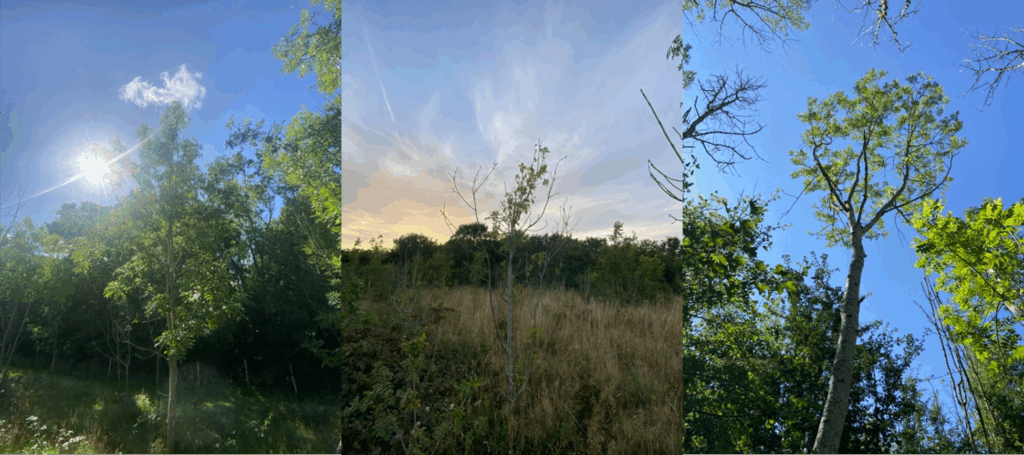 Completing the internship gave me the confidence to undertake a CFP-funded PhD project, investigating the genomic basis of long-term reduced susceptibility to ash dieback disease. The project aims of build a genomic prediction model to identify trees with greater resilience under high disease pressure and so are more likely to survive the infection in years to come. So far, this has involved lots of fieldwork to collect leaf material, curate datasets of existing leaf material, and develop an analysis pipeline to identify regions of the genome that differ between healthy and disease trees.
Completing the internship gave me the confidence to undertake a CFP-funded PhD project, investigating the genomic basis of long-term reduced susceptibility to ash dieback disease. The project aims of build a genomic prediction model to identify trees with greater resilience under high disease pressure and so are more likely to survive the infection in years to come. So far, this has involved lots of fieldwork to collect leaf material, curate datasets of existing leaf material, and develop an analysis pipeline to identify regions of the genome that differ between healthy and disease trees.
Good times never seemed so good!
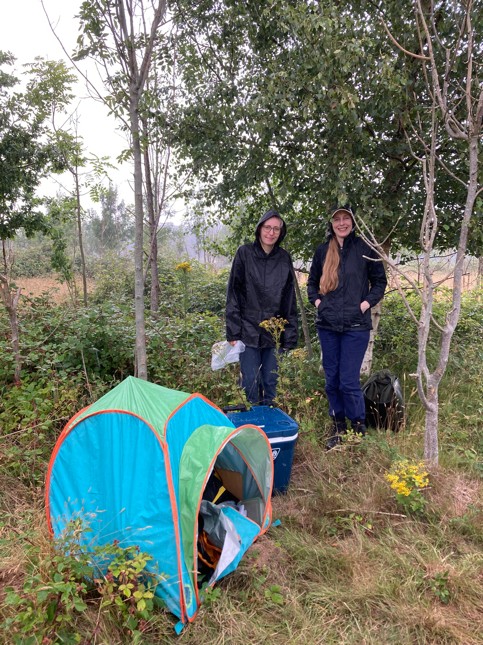 In the future, I see myself continuing in the field of tree genomic research. I thoroughly enjoy data analysis, uncovering patterns in datasets, and finding new ways to present and communicate results. With a focus on preserving ash woodlands and their associated flora, fauna and fungi, this research is incredibly rewarding, as it contributes to conserving the biodiversity and natural landscapes we all love and rely on. I would tell anyone considering a career in tree or plant health that whilst it is challenging, with many intricacies given the current and future threats from pests, diseases, and abiotic stresses, it is also deeply fulfilling to be creatively solving real world problems. Getting to contribute even a small part to the bigger goal of using tree to combat climate change and biodiversity loss is a real privilege. Also – be prepared to get stuck in! You might find yourself in the middle of a field in the pouring rain, but that’s all part of the adventure!
In the future, I see myself continuing in the field of tree genomic research. I thoroughly enjoy data analysis, uncovering patterns in datasets, and finding new ways to present and communicate results. With a focus on preserving ash woodlands and their associated flora, fauna and fungi, this research is incredibly rewarding, as it contributes to conserving the biodiversity and natural landscapes we all love and rely on. I would tell anyone considering a career in tree or plant health that whilst it is challenging, with many intricacies given the current and future threats from pests, diseases, and abiotic stresses, it is also deeply fulfilling to be creatively solving real world problems. Getting to contribute even a small part to the bigger goal of using tree to combat climate change and biodiversity loss is a real privilege. Also – be prepared to get stuck in! You might find yourself in the middle of a field in the pouring rain, but that’s all part of the adventure!
Read Phoebe’s blog from when she was a CFP intern: Intern diary – Phoebe – Centre for Forest Protection.
Find out more about our internship programme here: Education – Centre for Forest Protection.
If, like us, you love to see young people pursuing careers in science, you can hear from other promising young voices shaping the future of the tree and environmental sector in “The Future of Trees: Exploring Green Careers with Young Leaders” talk which was hosted by The Tree Council on Mon 24 Nov, 2025:
